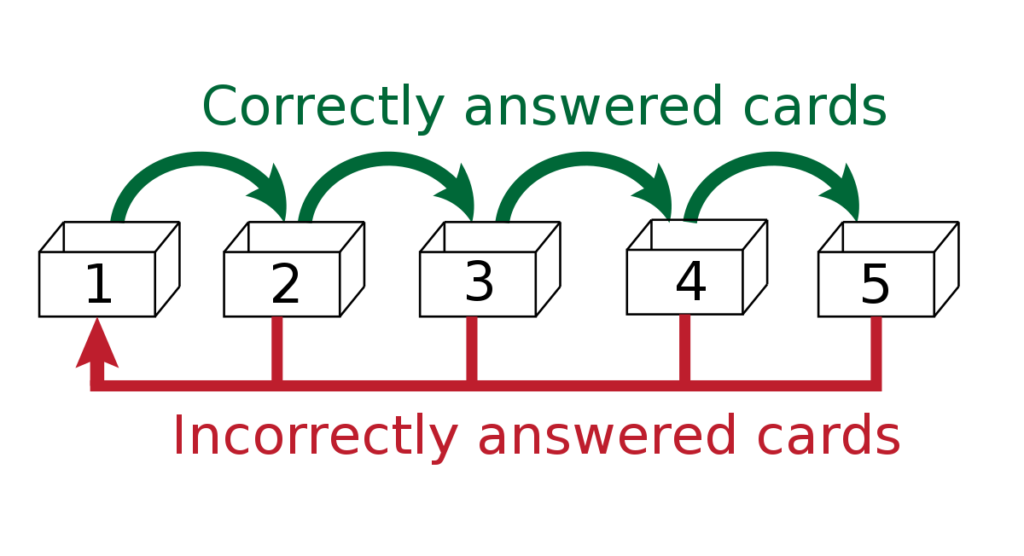Ever crammed all night for an exam, only to forget everything right after? We’ve all been there. Cramming works short-term, but not for lasting knowledge.
Enter spaced repetition—the unsung hero of learning. Schools might overlook it, but it’s essential for mastering anything, especially vocabulary. This technique will transform how you learn and retain information, making your journey to mastering vocabulary much smoother and more effective. Ready to dive in?
What is Spaced Repetition?
Think of spaced repetition like planting seeds in a garden. You don’t just dump all your seeds into one hole at once and hope for the best. You plant them thoughtfully, give them space, water them regularly, and over time, they grow into something amazing.
Spaced repetition is a learning technique that involves revisiting information at increasing intervals. Instead of cramming everything at once, you review the material after a day, then a few days later, then a week, and so on. This method reinforces your memory and strengthens the connections in your brain, making the information easier to recall in the long term.
It might not give you the instant gratification that cramming does, but the knowledge you gain from it can last a lifetime.
By revisiting information at specific intervals, you’re giving your brain the best chance to remember. This magic trick is called the spacing effect. It’s all about learning in chunks, spaced out over time, which helps your brain hold onto the information much longer.
How Does Spaced Repetition Work?
Every time you revisit information, you reinforce it in your memory, making it easier to recall next time. The intervals between reviews gradually increase, so you review less frequently over time but with greater retention.
The easiest way to practice spaced repetition is by using a spaced repetition system (SRS), like the Leitner Box method or apps like DuoCards.
The Leitner Box Method
The Leitner Box Method helps you review tricky items more often while giving you a chance to reinforce what you’ve already learned at longer intervals.
First, grab some flashcards. On one side, write a word, and on the other side, write the translation.
Next, set up a few boxes—let’s say 3 to 5—each with a different review schedule. For example, with 5 boxes, you can work like this:
- Box 1: Review every day (for new or tough words)
- Box 2: Every 2 days
- Box 3: Every 4 days
- Box 4: Every 7 days
- Box 5: Every 15 days (for mastered words)
Start with Box 1 and review the cards daily. If you get a card right, move it to the next box for less frequent review. If you get it wrong, put it back in Box 1. Keep repeating this process. Each time you study, focus on the cards based on their box schedule. Over time, you’ll move well-known flashcards to higher-numbered boxes, while tricky ones stay in Box 1 for frequent practice.
Think of it like tidying up your brain’s cluttered drawer into a neat, efficient system. However, it might feel a bit daunting, remembering where to start and where to place each card—especially with a lot of them—don’t you think?
The DuoCards Algorithm

DuoCards uses an adjusted Leitner Box system, effectively implementing the principle of spaced repetition without you even having to think about it.
That’s why we’ve spent a lot of time testing and optimizing our algorithm to make sure it’s just perfect and really simple to work with. It ensures that you get the most out of the spaced repetition technique possible.
DuoCards uses a special algorithm that mixes learning with listening exercises or word matching and adjusts the intervals accordingly. For simplicity and illustration purposes, it follows this schedule:
- 90 sec
- 30 min
- 12 h
- 2 days
- 2 weeks
- 2 months
To make it work, simply swipe your cards accordingly:
- When you know the word, swipe a card to the right. The card will then appear again later for review.
- Swipe a card to the left if you’re unsure about the word. It will show up again soon for a refresher. You can swipe cards left anytime you want to see them more frequently.
Do You Have to Keep Repeating Forever?
Do you need to keep repeating the information you want to learn for the rest of your life? Not exactly. The beauty of spaced repetition is that the time between review sessions extends over time, so you don’t need to review the information as often.
Advantages of Spaced Repetition for Language Learning
- Better Retention: Words stick longer. Your brain becomes a sponge that retains vocabulary over spaced intervals.
- Efficient Learning: Less time wasted. You focus on reviewing what you’re likely to forget, making your study sessions more productive.
- Reduced Study Fatigue: Spreads out learning, making it less overwhelming and more manageable.Improved Recall: Enhances memory recall, making language use more natural and fluent.
- Adaptability: Fits into any schedule, letting you learn at your own pace.
- Long-Term Mastery: Ensures knowledge retention over months and years, not just hours or days.
How Can You Get the Most Out of Spaced Repetition in Your Language Learning?
Consistency is Key
Set a goal, like studying for 20 minutes every day. Make it a ritual. Drink your coffee, water your plants, and complete your DuoCards. By making learning part of your daily routine, you’ll be more likely to stick with it.
Make Learning Part of Your Daily Routine
You’ve committed to 20 minutes a day—that’s awesome! Now, make it even easier by setting a specific time. Study before bed, during lunch break, or during your morning commute (if you’re not driving!). This routine will help you stay consistent.
Moreover, set up notifications with DuoCards so you won’t miss a session—Memo will remind you every time.

Keep Track of What You’ve Learned
To make your learning as effective as possible, it’s crucial to know what you’ve already covered. Flashcards are your best friend here. With DuoCards, creating your own flashcards is a piece of cake [link na Content Planner 2025]. Plus, there’s a smart algorithm that tracks your progress for you. Easy peasy!
Give Yourself Enough Time to Learn
It’s called “spaced” repetition for a reason—give yourself the space and don’t rush it. Be patient. Learning a language takes time. Let your knowledge grow at its own pace.
Recall What You’ve Learned
It can be tempting to dive into new vocab and concepts all the time because it’s exciting. But don’t just chase new words. Revisit what you’ve learned. Like re-reading your favorite book, it deepens your understanding and keeps it fresh.
Increase the Intervals
Space out your study sessions. The longer you wait between reviews (within reason), the stronger the memory becomes. People often wonder about the ideal length of time between sessions. The trick is that the time between the first and second review should be shorter than the time between the second and third, and so on. Apps like DuoCards have got that covered!
Ok, so you want to learn for 20 minutes a day. Let’s be even more specific! Don’t try to just fit it in whenever you have free time. Instead, make concrete plans. You can study before you go to bed or on your way to work (assuming you don’t drive). This will help you to stick to your schedule.

Ready to Transform Your Language Learning Journey?
Now that you’re armed with the ultimate secret to mastering vocabulary through spaced repetition, it’s time to put it into practice. Whether you’re creating your own flashcards, exploring linguist-curated courses, or diving into user-generated content, DuoCards has everything you need to make language learning effective and fun.
So next time you’re hitting the books, give spaced repetition a shot. Your brain will thank you, and who knows—you might just become unstoppable.
Download DuoCards now and take the first step towards becoming a language master!
P.S.: Spaced repetition isn’t just a study hack; it’s a game-changer. By integrating a spaced repetition system like the Leitner Box into your routine, you’re setting yourself up for success. Happy learning!






